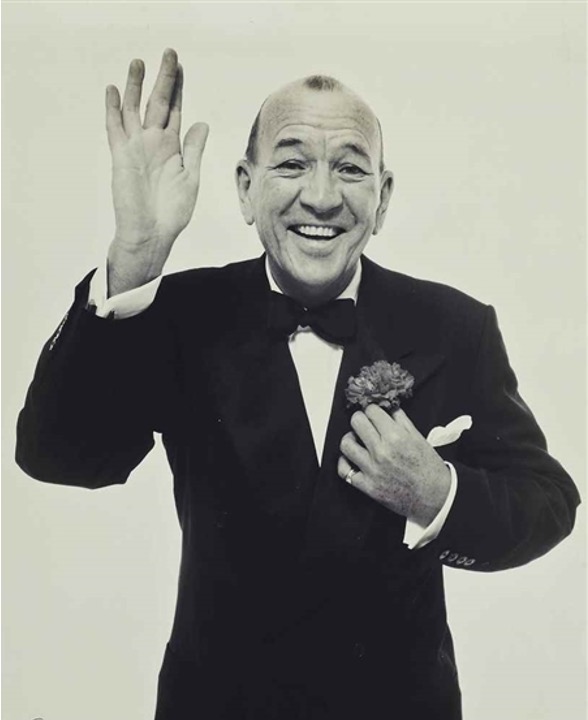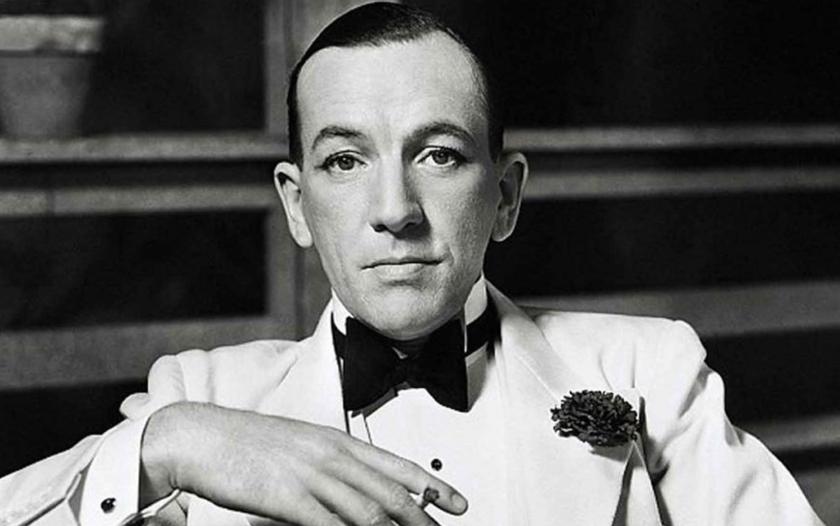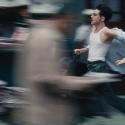Devoted fans may not learn anything that new about Noel Coward from Barnaby Thompson’s documentary Mad About the Boy, but they will doubtless see some new things. And those who know “the Master” only from his early plays, hardy perennials these days in British theatres, will marvel at the sheer range and volume of his output.
Thompson has been given access to archive materials, including Coward’s home movies, by his estate, and these provide a welcome garnish to the bare bones of his CV. See Coward propelling himself on a lilo across the sea at the foot of his beloved Jamaican property. Watch as he performs an impressively lively charleston (in his fifties) for the TV cameras. Check him out enjoying the sun with two young friends, in swimming trunks that leave little to the imagination.
Perhaps the most astonishing visual in the film is his face in tight close-up on television as he performs, word-perfectly and at breathtaking velocity, “Mad Dogs and Englishmen”, his eyes on fire. A single line of the song would twist the average tongue into pulp. You understand why he became a Las Vegas cabaret sensation in the 1950s, a feted regular on chat shows, a much loved entertainer of the troops in Australia in the second world war.
What nobody knew at the time was that ENSA wasn’t Coward’s only, or most important, contribution to the war effort. He was a spy. The film tells us what it can of this activity, but you want much more. Coward was trained at Bletchley Park, no less, and sent to Paris to spread disinformation to the Germans and recruit the locals. He was then despatched to the US to gather information and sway opinion-makers there into joining the Allies.
His globetrotting and “silly ass” [his words] persona were the perfect cover, but, sadly for him, to the popular press it looked like frivolous gallivanting while our boys were dying. He apparently never broke cover and took the unfair “kicking” on the chin, only finding consolation decades later when the Queen Mother, a regular visitor, even to his Jamaican home, inquired whether he would accept a knighthood.
By that time,1966, homosexuality was on the verge of legitimacy. Coward’s long-term partners were in plain sight, his first, Jack Wilson, becoming his business manager, and his most significant one, Graham Payn, appearing alongside him in 1960’s The Italian Job.
HIs many film roles are a godsend to Thompson, who can use clips from them as visuals to accompany Rupert Everett reading from Coward’s autobiographical writing or alongside appropriate songs chosen from the 500+ he composed, sung by Coward himself (the recordings of "Mad About the Boy" over the opening and end credits are lusher versions by Dinah Washington and Adam Lambert).
It’s inventively done, using, for example, scenes of Coward briefing new arrival Alec Guinness in Our Man in Havana for the segment on his spying activities. The still photographs are given colourised details, such as Coward’s red boutonnières (usually carnations), and they are animated by simulated parallax, the technique favoured by the documentarist Ken Burns for treating stills to look as if they are in 3D so you can “get into” them and give them nifty effects like making smoke rise from cigarettes.
 The material of Coward’s life-story is impossibly rich – his friend Lord Mountbatten is shown giving a birthday speech for him that reckoned he had 14 significant careers – but it’s not that strange, the spying aside. He adored his mother Violet, whom he raised out of near-poverty in Teddington. Sex wasn’t a big deal for him, he claimed, and he seems to have been a faithful lover, seeking kindness and loyalty in return, which he got with his beloved Payn.
The material of Coward’s life-story is impossibly rich – his friend Lord Mountbatten is shown giving a birthday speech for him that reckoned he had 14 significant careers – but it’s not that strange, the spying aside. He adored his mother Violet, whom he raised out of near-poverty in Teddington. Sex wasn’t a big deal for him, he claimed, and he seems to have been a faithful lover, seeking kindness and loyalty in return, which he got with his beloved Payn.
He was a generous and sociable man, becoming president of a charity for orphans that reared the young boy who would later direct The Italian Job, Peter Collinson. He mingled with just about everybody, from Frank Sinatra to Liz Taylor, didn’t fall out spectacularly with any of them on the record, even Churchill, whom he suspected of blocking his first stab at a knighthood because he disliked Coward’s homosexuality. He had devoted friends, like his co-star and sometime muse Gertrude Lawrence and accompanist Norman Hackforth (who shared his rolled Rs with him); and his long-serving personal team lived in his house with him.
At certain points in his life he was very lonely, and very broke – after 1945 his plays got stinky reviews, from critics starting to love kitchen-sink drama. But he always bounced back, in particular using long-distance travel to calm himself, where between leaving and arriving he was at his most reflective and productive.
Where are the beefs? Nowhere in sight, and anyway most of his peers are long gone. There is an inevitable whiff of hagiography to the proceedings and of avenues unexplored or unexplorable. Was Coward universally loved? It would be lovely to think so, but you rather wish Thompson had found just a little grit to sprinkle over this sweet confection. But Coward seems to have taken life’s slings and arrows with the stiff upper lip he championed in public, and he was invariably charming and witty to everybody he met.
Anyway, talking heads with contrary views are not welcome at this marvellous party. If you want a heartening rags-to-riches tale of a man who, despite leaving school at nine, became an English role model and taught his fellow countrymen how to dress, live well and be immensely popular… sail away.















Add comment